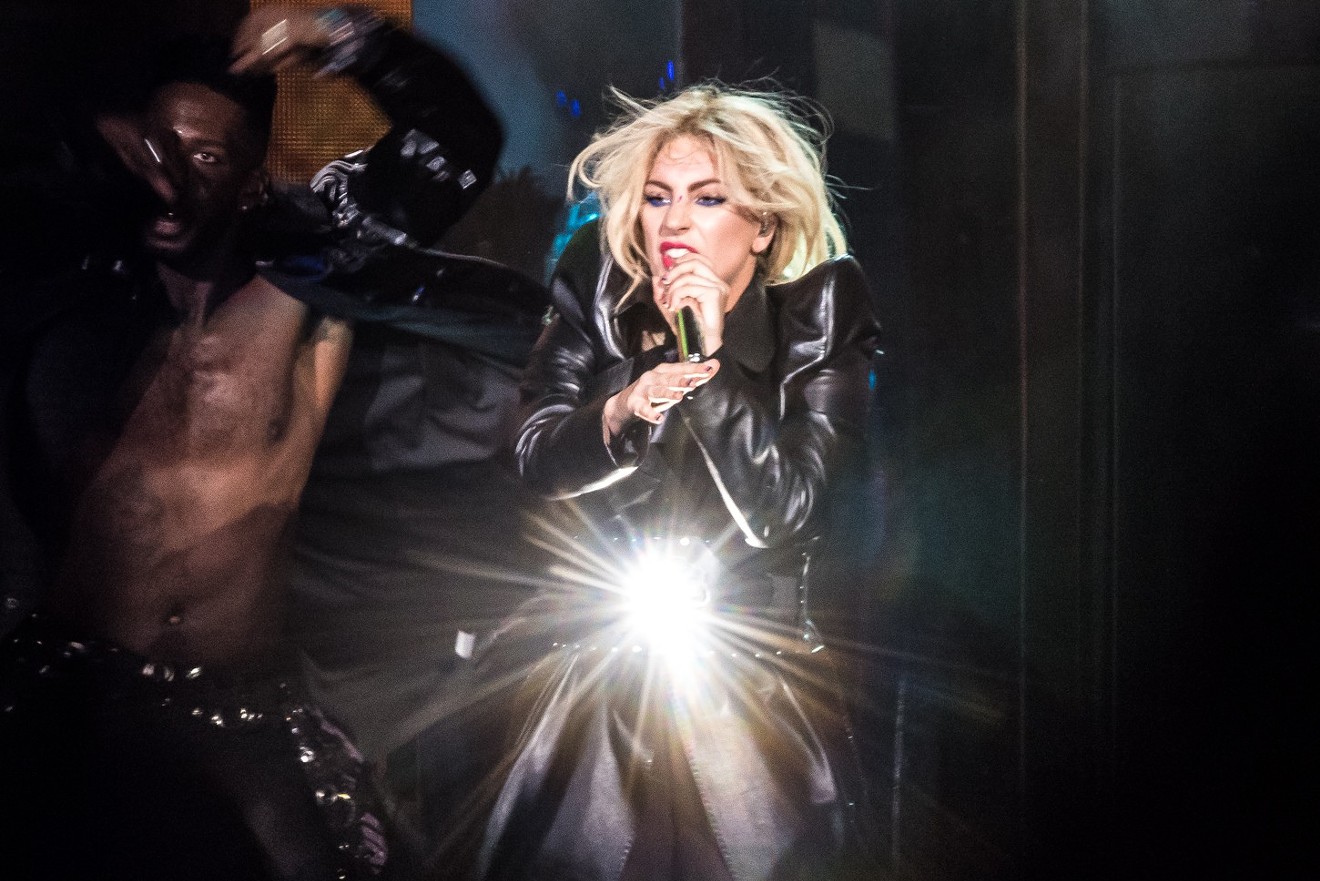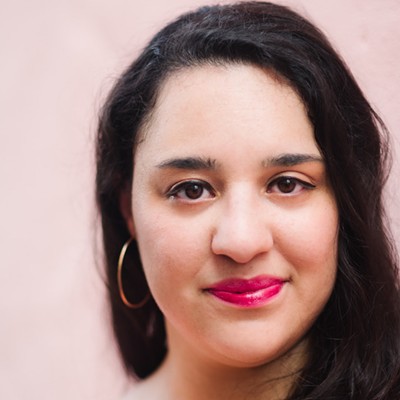Sexual assault allegations have rattled Hollywood, beginning with Harvey Weinstein last month and taking down the likes of Kevin Spacey and Louis C.K. in the process. They have reverberated through the halls of the Capitol, where Rep. Jackie Speier (D-CA) and Rep. Barbara Comstock (R-VA) detailed alleged harassment and even indecent exposure by current members of Congress. Though some musicians, such as Real Estate cofounder Matt Mondanile, Marilyn Manson guitarist Twiggy Ramirez, and Brand New frontman Jesse Lacey, have been accused in the weeks since the Weinstein story broke, the music world has largely avoided the effects of #MeToo.
This is surprising. After all, the music business has plenty in common with film and political spheres, namely a culture of men wielding power behind the scenes.
That's not to say red flags haven't been waving for some time. Three months before the New York Times published the Weinstein story, Kesha released "Praying," her long-awaited comeback single after a years-long court battle with disgraced superproducer Dr. Luke, whom Kesha accused of sexual assault and emotional abuse during their decade-long professional relationship. Taylor Swift, who recently successfully fought a radio DJ in court over alleged groping, donated $250,000 toward Kesha's legal fees, and Lady Gaga used the opportunity to speak out about predatory behavior by powerful men in the music industry. She has since been subpoenaed in the ongoing court proceedings between Kesha and Dr. Luke.
The Kesha court case was not the first or last time Gaga has spoken out about sexual predation. In 2014, she revealed to Howard Stern on his radio show (after a significant amount of prodding from the shock jock) that at age 19, she was raped by a music producer. "It didn't affect me as much right after as it did about four or five years later," she said at the time. "I wasn't even willing to admit that anything had even happened... I didn't tell anybody, and I didn't even tell myself for the longest time."
Gaga said she was hesitant to share her story, citing fears that her art would only be viewed through the lens of her alleged attack. "I'll be damned if somebody's going to say that every creatively intelligent thing that I ever did is all boiled down to one dickhead that did that to me," she said. "I'm going to take responsibility for all my pain looking beautiful and all the things that I've made out of my strength. I did that."
Lady Gaga disclosed the alleged assault in reference to questions about her performance of the song "Swine" at South by Southwest that year, in which she rode a mechanical bull, mimicked having her body roasted on a spit, and, most controversially, collaborated with "vomit artist" Millie Brown, who puked green and blue paint on the pop singer during the performance. Reaction was swift, with critics accusing Gaga and Brown of glamorizing bulimia and other eating disorders. Gaga argued that her intention was to channel the rage and shame she felt from the attack into performance art.
It's a tired but sadly true fact that womens' complaints of sexual harassment or assault are often dismissed. But what can be said about women such as Lady Gaga, who have chosen to express the fallout in art? Gaga has been alluding to her alleged assault through her music and videos for years, but it was only after her pained admission to Stern that a larger conversation about her experience began.
Three years before her performance at South by Southwest, she directed the ambitious minimovie music video for her song "Marry the Night," off of 2011's Born This Way. It is a surrealistic depiction of the aftermath of a sexual assault. It opens with Gaga lying on a gurney and talking about the human effect of trauma, which she calls "the ultimate killer." As she puts her purse down after a doctor confiscates her cigarette, a closeup of her back reveals heavy bruising and signs of struggle as her doctor orders "no intimacy for two weeks." Later, she returns to her apartment, where she has a psychotic breakdown, dousing herself in milk and Cheerios.
When it was released, the "Marry the Night" video was Gaga's most obvious representation of her assault. But her previous album, 2009's The Fame Monster, also explored themes of sexual exploitation. In the video for "Bad Romance," Gaga recoils and attempts to cover her body after she's exposed in front of men who bid on her at a kind of sex-trafficking auction. The video is part revenge fantasy; at the end, she burns the bed and the man who forces her into it against her will.
On another album track, "Monster," Gaga uses horror-genre imagery to tell the tale of a man who ignores her boundaries and violates her consent. "I wanna just dance/But he took me home instead," she sings. "Uh-oh! There was a monster in my bed/We French-kissed on a subway train/He tore my clothes right off/He ate my heart, and then he ate my brain."
Gaga's writing, couched in metaphors, offers the idea that the man's assault resulted in emotional pain and mental anguish, possibly even blackouts like the one she dramatizes in the "Marry the Night" video.
Since coming forward as a survivor on Stern's show, Gaga has stopped hiding behind metaphors and surrealist visuals in addressing her trauma. She opens her latest album, Joanne, with an explicit acknowledgment of the alleged assault in the song "Diamond Heart." "Some asshole broke me in/Wrecked all my innocence," she sings in the opening verse. And less than a year before the release of Joanne, she performed the song "Til It Happens to You" at the 2016 Oscars with 50 survivors of sexual assault onstage. The song was nominated for Best Original Song for the documentary The Hunting Ground, about the pervasiveness of sexual assault on college campuses. Ironically, and perhaps as an indication of the insidiousness of Hollywood's problem, the film was distributed by Weinstein's company.
After the #MeToo hashtag went viral in the wake of the Weinstein scandal, women argued they do not owe anyone their abuse stories. The number of women who've taken to social media or sat down with their family and friends to share their pain pales in comparison to the quantity that cannot relive their trauma. Yet it's hard to shake the feeling that this wave of women who finally feel safe enough to name their abusers marks a watershed moment in American life. The very least we can learn from women like Lady Gaga is that survivors voice their experiences in a variety of ways — and that they shouldn't have to explicitly describe the horror they endured in order for society to listen.
Lady Gaga's Joanne World Tour. 7:30 p.m. Thursday, November 30, at the American Airlines Arena, 601 Biscayne Blvd., Miami; 786-777-1000; aaarena.com. Tickets cost $86 to $340 via ticketmaster.com.
[
{
"name": "Air - MediumRectangle - Inline Content - Mobile Display Size",
"component": "19274298",
"insertPoint": "2",
"requiredCountToDisplay": "2"
},{
"name": "Editor Picks",
"component": "17482312",
"insertPoint": "4",
"requiredCountToDisplay": "1"
},{
"name": "Inline Links",
"component": "18711090",
"insertPoint": "8th",
"startingPoint": 8,
"requiredCountToDisplay": "7",
"maxInsertions": 25
},{
"name": "Air - MediumRectangle - Combo - Inline Content",
"component": "17482310",
"insertPoint": "8th",
"startingPoint": 8,
"requiredCountToDisplay": "7",
"maxInsertions": 25
},{
"name": "Inline Links",
"component": "18711090",
"insertPoint": "8th",
"startingPoint": 12,
"requiredCountToDisplay": "11",
"maxInsertions": 25
},{
"name": "Air - Leaderboard Tower - Combo - Inline Content",
"component": "17482313",
"insertPoint": "8th",
"startingPoint": 12,
"requiredCountToDisplay": "11",
"maxInsertions": 25
}
]












